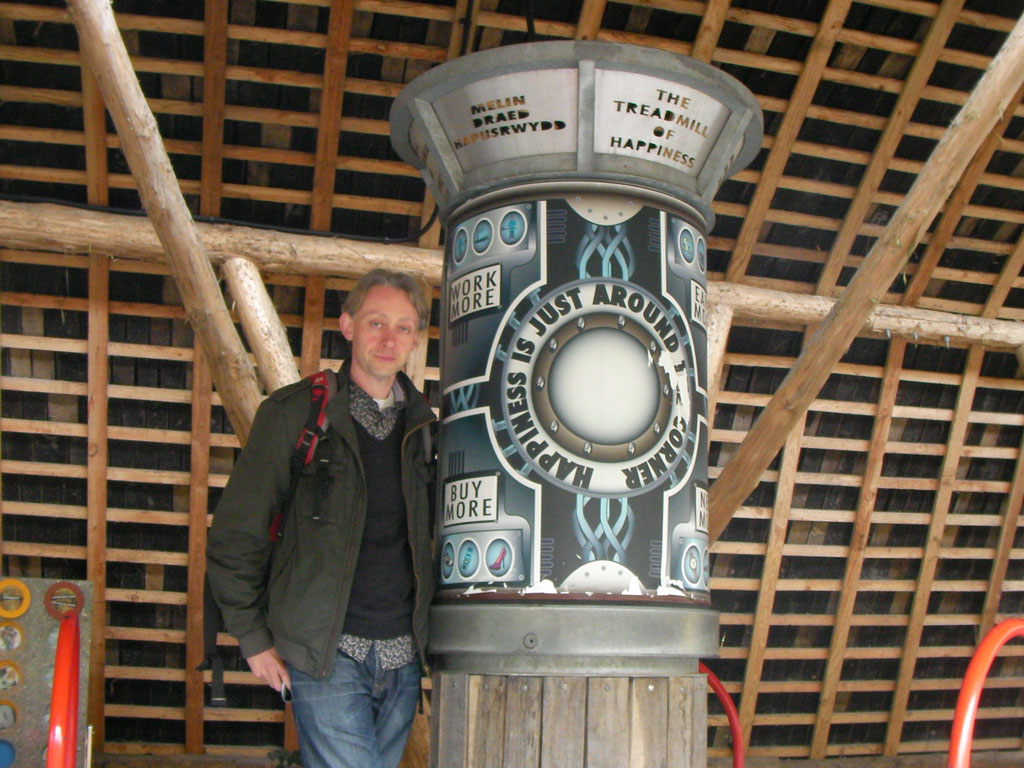They released pink balloons for her birthday.
Then they gathered in unity along the main drag, Heol Maengwyn, to mark her special day, wrapping everyday objects as if gifts and hugging each other tight against the cold of the spring that never came.
But there was no cake that day, no sing-song rendition – just a numbing void. The spectral presence of the little girl was everywhere.
We felt it, too, when we arrived weeks later.
It saturated us like a fine drizzle as walked past shops selling crystals and dream catchers. It followed us around the Spar supermarket as we bought supplies for a makeshift breakfast.
And it pricked our fingertips like freezer burns as we touched the tiny pink ribbons left behind, which splashed bloodspots against the grey-slate facades and the weather-blackened railings.
“The impact was immense,” said Bethan, mixing up bergamot and lavender oils in preparation for our holistic massage. She tossed aside her mane of dreadlocks and looked us in the eyes.
“Immense,” she added.
We talked with her about realigning chakras and then retired to our treehouse bed, gazing at the full-moon sky through the porthole window.
It was peaceful in the forest but we didn’t feel at peace. We wanted to know our children were safe before we could sleep that night.
But there was no signal in the darkness of the ancient oak woodland. No electricity to charge flat batteries.
At first the town had attracted all the healers, hippies and Led Zeppelin hangers-on from across Wales and the borders.
They followed when, in the early Seventies, a group of environmentalists set up a green technology centre in the wooded river valley across the ancient stone bridge.
The city high-fliers formed the second wave with their flash cars and trophy wives, casting aside pin-stripe suits to run feral through the forest.
But going off grid attracted a premium rate and the commune dwellers soon found themselves not just staring down the cold-steel barrel of capitalism, but nursing increasingly itchy trigger fingers.
“I would find them naked by the first morning,” says Michael, tidying the yurt for new arrivals. “They’d gone back to nature.”
Recently the news crews arrived. The nights were dark and the atmosphere heavy as the community gasped for air amongst a deluge of vox pops and live links to studio.
By the time they left again, spring was late, lambing snow blighted and the double dip entrenched.
Now everyone is looking for vital signs.
“I feel the town is finally on the up again,” head chef Sam told us as we perused the low-food-miles menu.
“We’ve moved back here from Shrewsbury to start this business and we’re determined to make a go of it. There are others like us.”
We left the tow with its quiet dignity, our problems seeming trivial by comparison. We had come for healing but instead found perspective.
There were more pink bows and pairs of angel wings, pinned against tree stumps and clinging to road signs, as we drove away.
We arrived home that night and collected our respective children, hugging them to us and dreading the inevitable moment in the darkest recess of the night when thoughts too terrible to bear would shake us violently awake.
Her face was back on the television the next day and it stopped us dead in our tracks, peeling potatoes for dinner while the girls bickered between themselves oblivious.
The five-year-old girl who went out to play one night and, as every parent dreads, never came home.
